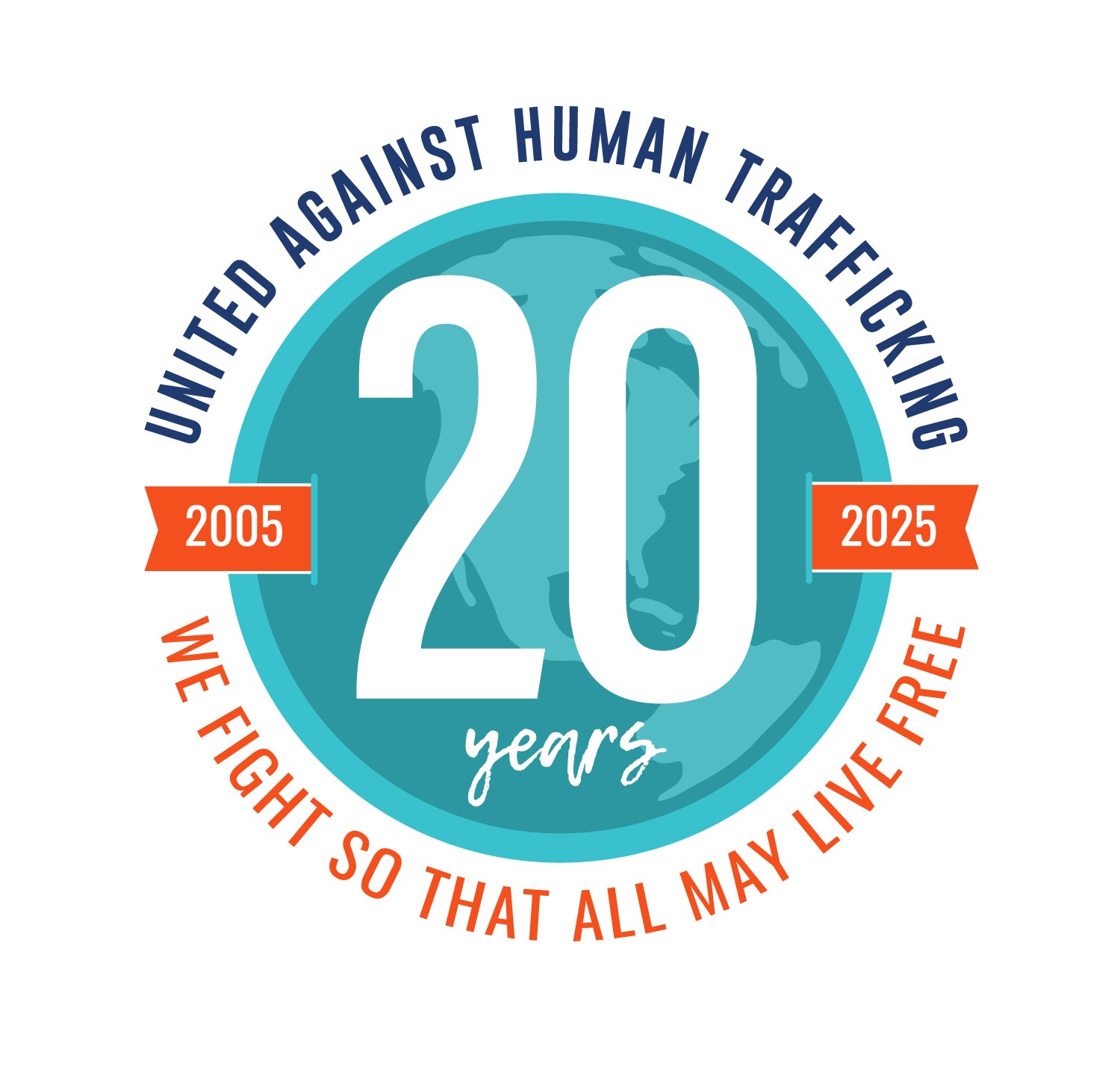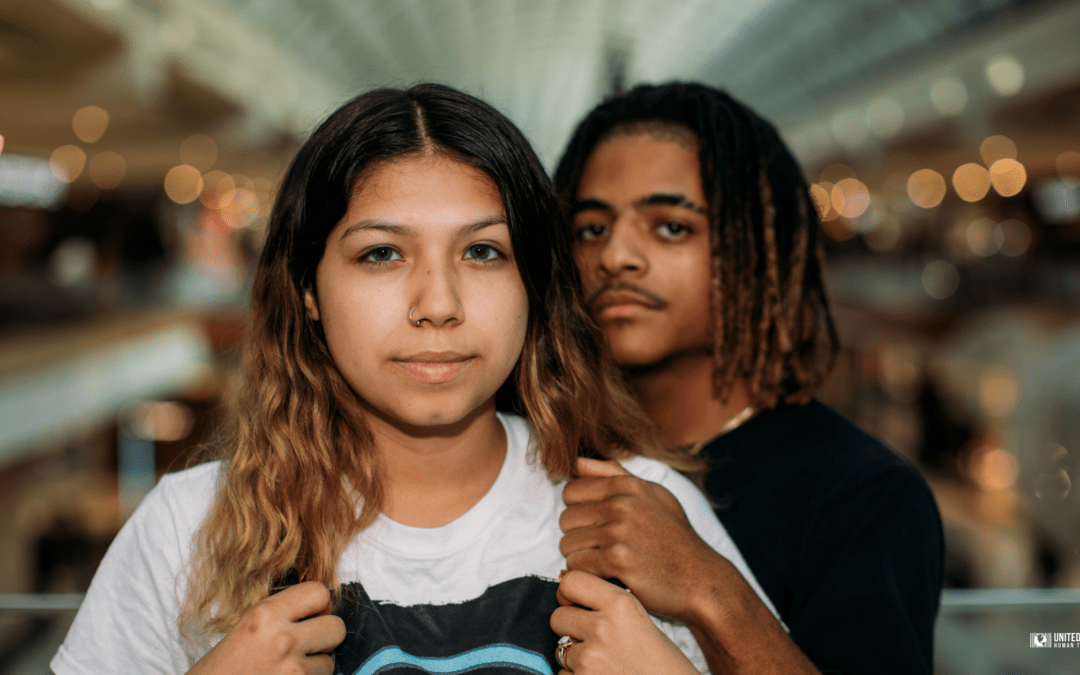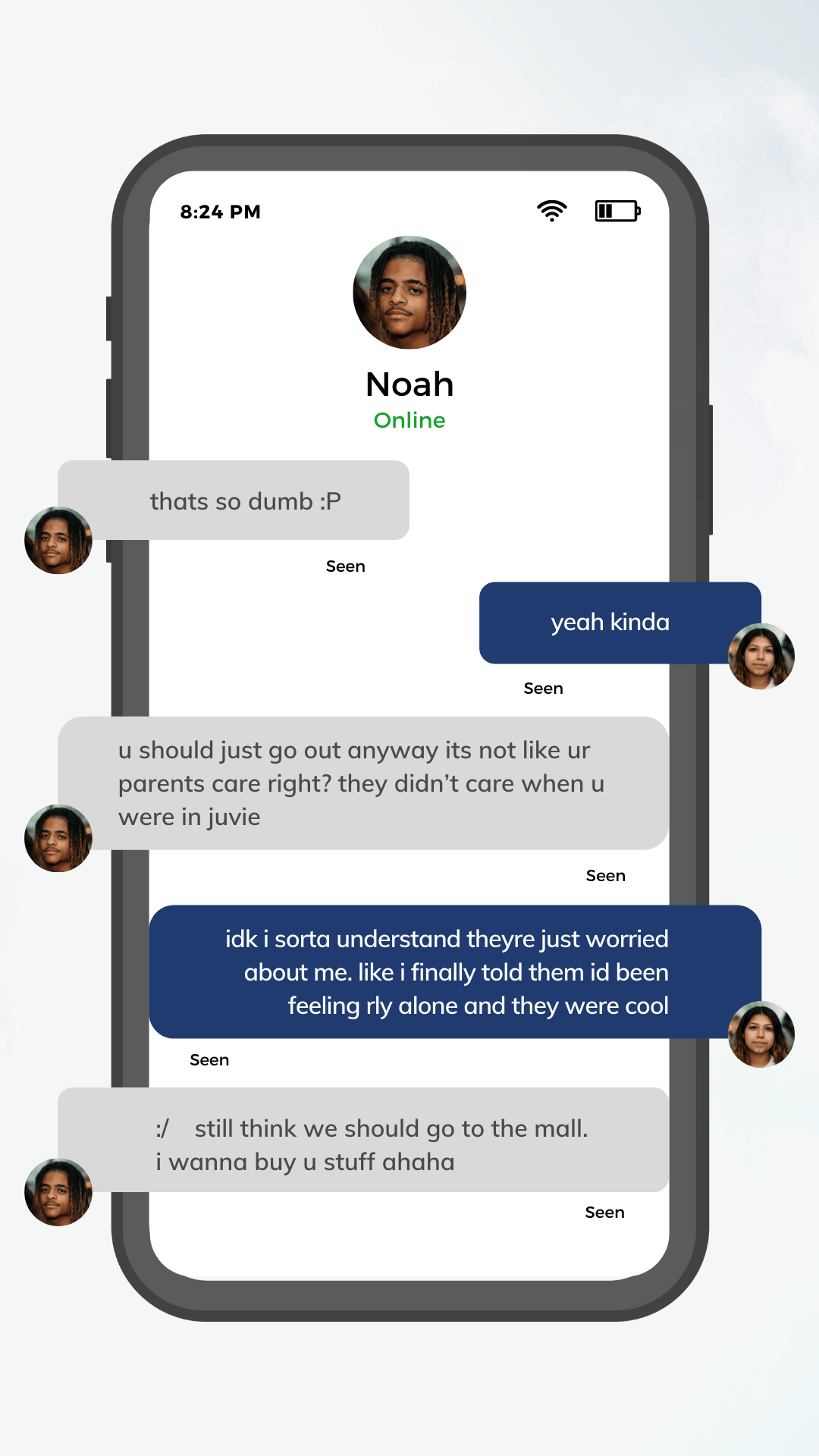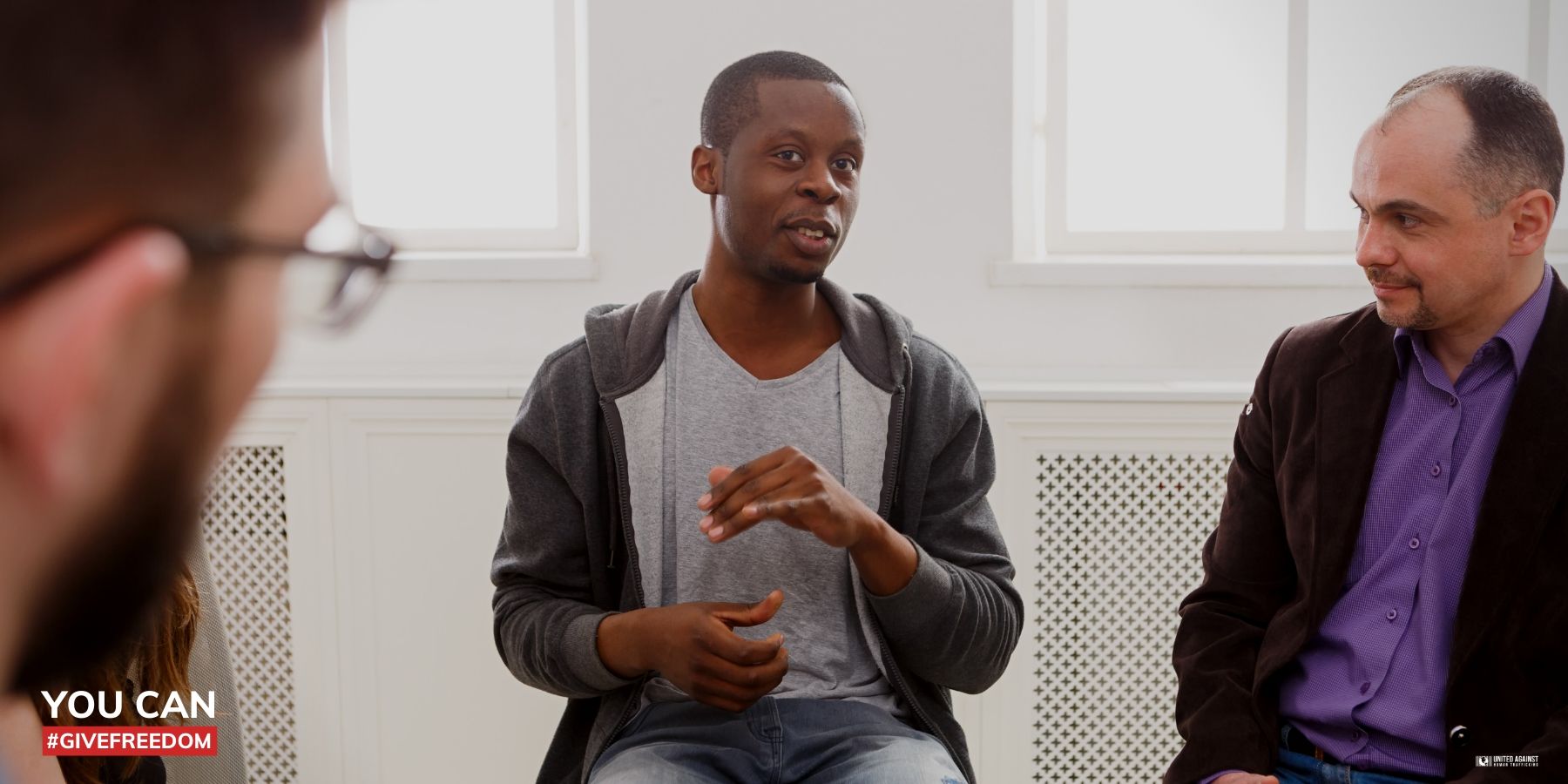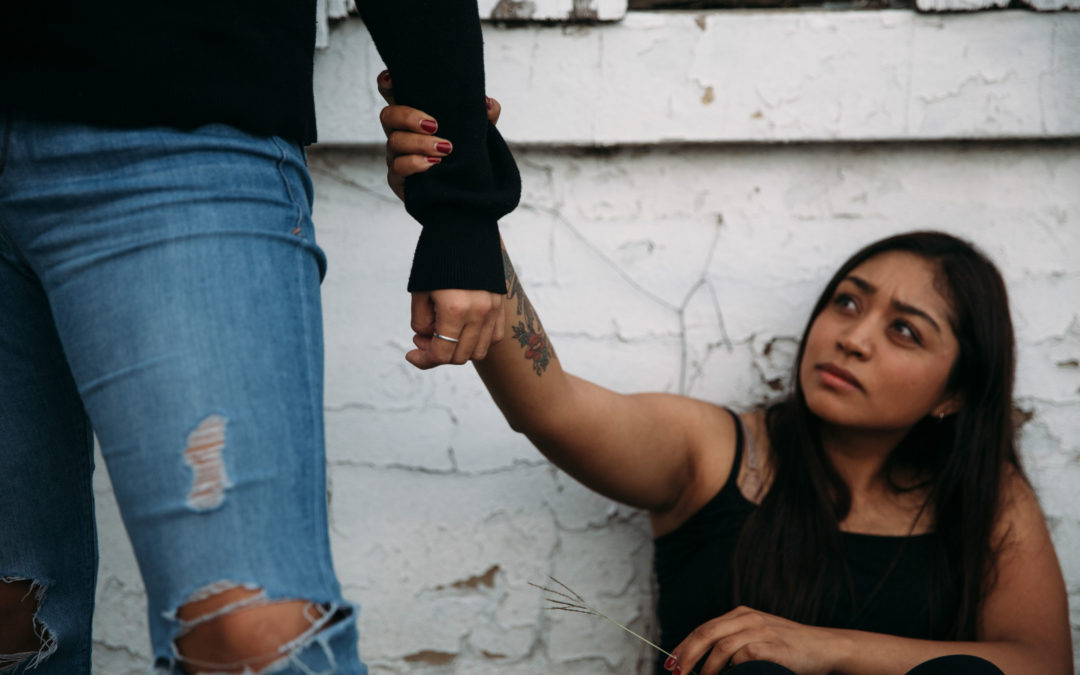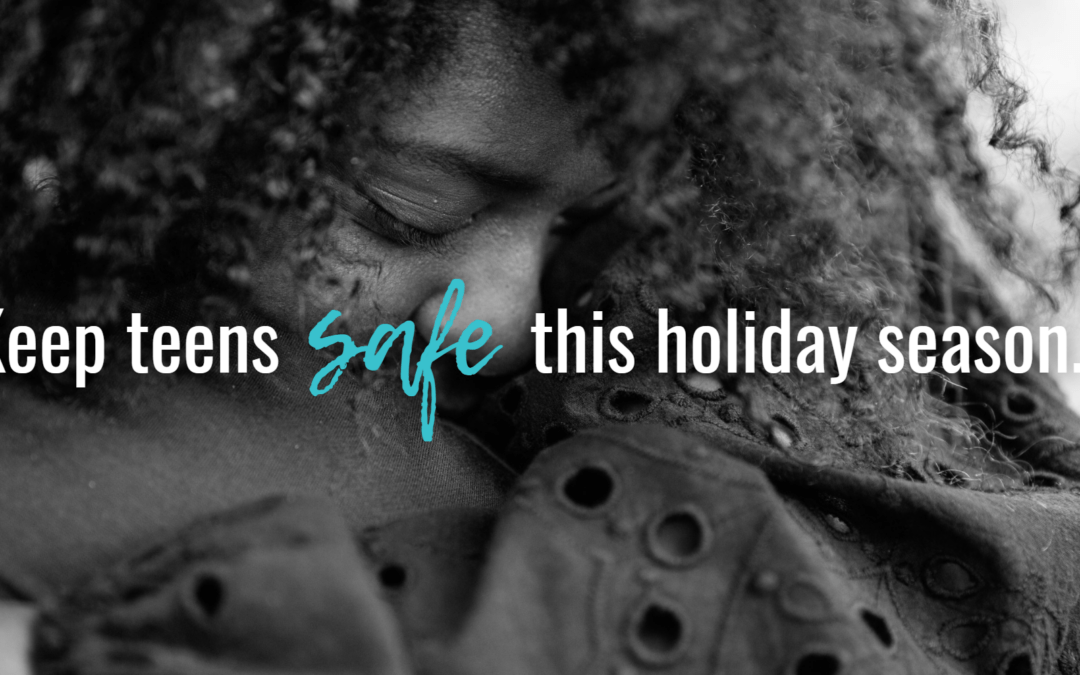
You Can Keep Teens Safe this Holiday Season
When you give to United Against Human Trafficking, you help kids like Nyoka stay safe.
It’s normal for teenagers to feel lonely and misunderstood – but for Nyoka, these feelings were so intense at times that they clouded her mind.
She would lay in her bed, staring at her phone, and think about the oppressive weight pressing on her chest. Her mother was working late again. If Nyoka yelled, would anybody hear? Would anybody care?
Your gift helps UAHT reach teens like Nyoka, reminding them they are not alone.
Because so many children today are feeling isolated in the wake of such a lasting pandemic.
And that isolation can be dangerous.
Nyoka met her groomer on Facebook.
Kelly seemed like the coolest girl Nyoka could imagine. She was a few grades above Nyoka, wore cute clothes, and even drove her own car.
On top of it all, Kelly was choosing to talk with Nyoka! It made the lonely teen feel special.
Kelly and Nyoka chatted on Facebook Messenger every day. They complained about their parents – Nyoka’s mom was always at work and her father was incarcerated – and gossiped about what was happening at their schools.
Trafficking recruiters take advantage of desperation – from poverty, from trauma, and loneliness. With your help, teens like Nyoka can learn vital life skills to recognize and avoid these manipulative tactics.
Supporters like YOU ensure thousands of teens learn how to safely navigate social media and spot potential trafficking groomers.
Because if knowledge is power, then knowledge of human trafficking can save young lives.
Weeks passed before Nyoka began UAHT’s after-school program called Real Talk.
Though she had been cautious at first, Nyoka was quickly warming up to her fellow group members and UAHT’s facilitator. He really listened to the teens when they opened up about their emotions, and the calm kindness he exuded helped them feel safe.
During one session while they all shared some snacks, the facilitator explained what human trafficking is. All the kids shared wide-eyed looks when he showed them some pictures of convicted traffickers: there were men, women, adults, and even teens!
You give youth a chance at growth when you donate to UAHT.
$50 brings favorite snacks to vulnerable kids in residential facilities who participate in UAHT’s peer support group Real Talk.
$100 helps connect an overlooked child who discloses victimization to critical support services.
$500 enrolls a young adult survivor of human trafficking in comprehensive case management to start reclaiming their lives.
Don’t wait! Donate today and ensure at-risk children know how to recognize and avoid traffickers – before they experience harm.
When Nyoka saw the picture of the cheerleader-turned-trafficker, she felt sick to her stomach.
Her mind flashed back to when she snuck away from home to go shopping with Kelly a few weeks ago. It was at the mall where Kelly gifted a silver bracelet to Nyoka and teased her until she drank a beer.
According to the class, giving gifts, manipulating emotions, and encouraging illegal acts were all red flags that she was being groomed for something harmful.
Since that trip, Kelly kept insisting that 16-year-old Nyoka come with her to an 18+ club where “cute older boys would be.” Nyoka made excuses, but Kelly remained persistent.
Could Kelly be a trafficker? The notion haunted Nyoka for days.
At the next Real Talk session, Nyoka volunteered to share her situation with the group to get their opinions.
Nyoka told the group everything.
She told them about Kelly, about the mall trip, and about the mounting pressure she felt from her new ‘friend.’ When Nyoka had finally finished unloading the burden of her story, she realized that tears were falling down her face.
Nyoka’s peers and facilitator listened openly and compassionately.
They did not judge her, and they did not make her feel stupid. The facilitator calmly tied the teen’s experience to what the group had been talking about last session: the early stages of trafficking recruitment.
With the gentle support of her group, Nyoka realized that she had been regularly posting on Facebook about feeling lonely when ‘Kelly’ first reached out. The teen’s stomach dropped. So THAT’S why Kelly took so much interest in her life.

Every day, teens like Nyoka face dilemmas we will never hear about
And if we do, it isn’t until it’s in the newspaper, or a tragic story whispered in the neighborhood. If she had finally given in to Kelly’s demands to go to that club, the young teen would have been coerced into servicing one of the older teen’s ‘friends.’ The situation would have escalated from there: new clubs, new ‘friends,’ and blackmail if Nyoka ever tried to refuse.
But thanks to the support UAHT receives from friends like YOU, Nyoka felt heard.
She got out her phone and blocked Kelly on Facebook with her new friends cheering at her side.
UAHT’s facilitator worked with Nyoka’s counselor to ensure he knew about the situation and even assisted the teen in speaking to her mother about it.
Now if Kelly ever tried to contact Nyoka again, Nyoka would have backup that even Kelly could not manipulate her way through.
When the Real Talk session ended, a few of her peers approached Nyoka to ask how she was doing. They complimented her for her brave vulnerability and asked if she wanted to meet up tomorrow after school at a nearby park to talk some more.
Some of the clouds in Nyoka’s mind began to clear, revealing a hopeful blue sky.
Please, give to UAHT today to help facilitate new stories of hope for troubled teens, struggling survivors, and so many more who deserve somebody to walk alongside them.
UAHT can give children the space to bring their blue sky back thanks to such a generous community. YOU make it possible.
